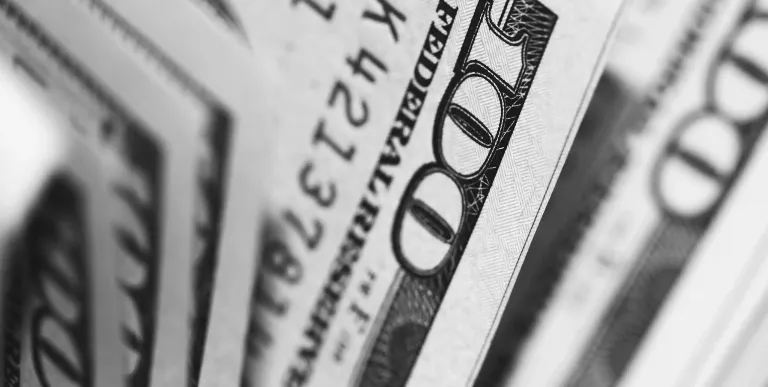Forex – also known as the foreign exchange market – is the largest trading market in the world. Find out all about the FX market, currency pairs and more in this article.
Forex – also known as the foreign exchange market – is the largest trading market in the world. Find out all about the FX market, currency pairs and more in this article.
What is Forex?
Put simply, forex – also known as FX or foreign exchange – is the exchange of one currency for another at an agreed price. It’s a decentralised market where the world’s currencies are traded as an over-the-counter (OTC) market, which means that trades are fast, cheap, and are completed without the supervision of an exchange.
Forex never sleeps
Essentially, forex trading is the act of speculating on the movement of exchange prices by buying one currency while simultaneously selling another. Currency values rise (appreciate) and fall (depreciate) against each other due to a number of economic, geopolitical and technical factors.
Forex is a globally traded market, open 24 hours a day, five days a week (Monday to Friday). It follows the sun around the earth, opening on Monday morning in Wellington, New Zealand, before progressing to the Asian markets in Tokyo and Singapore. Next, it moves to London before closing on Friday evening in New York.
Even when the market is closed from Friday to Sunday, there is always something happening that will take its toll on various currencies by the open on Monday.
There is no larger market
Forex is the world’s most traded market with an average turnover in excess of around $5 trillion a day. This means that currency prices are constantly fluctuating in value against each other, creating multiple trading opportunities for investors to take advantage of.
It is rare that any two currencies will be identical to one another in value, and it's also rare that any two currencies will maintain the same relative value for more than a short period of time.

You may not even know, but you’ve probably been a part of the FX market at least once in your lifetime. Let’s say you’re planning a holiday to the United States and you need to change your spending money from pounds sterling (GBP) into US dollars (USD).
On Monday, you find a local currency exchange and see that the exchange rate for GBP/USD is $1.45. This means that for every pound you exchange, you’ll get $1.45 in return. You spend £100 to get $145.
However, you pass the same currency exchange a few weeks later and notice that the latest exchange rate for GBP/USD is now $1.60. Your £100 would now get $160 – an extra $15 – had you known to wait for the pound’s rise in value against the dollar.
The fundamentals of forex trading
Currency exchange rates are fluctuating all the time for a variety of factors, such as the strength of a country’s economy. What forex traders seek to do is profit on these fluctuations by speculating whether prices will rise or fall.
All forex pairs are quoted in terms of one currency versus another. Each currency pair has a ‘base’, which is the first denoted currency, and a ‘counter’, which is the second denoted currency.
Each currency could strengthen (appreciate) or weaken (depreciate). As there are two currencies in each pair, there are essentially four variables you are speculating on when it comes to forex trading.
If you believe the value of a currency will rise against another, you go long or ‘buy’ that currency. If you believe the value of a currency will fall against another, you go short or ‘sell’ that currency.
So for example, if you felt the USD would strengthen (appreciate) against the JPY, you’d go long or buy the USD/JPY forex pair. You’d also buy if you felt the JPY would weaken (depreciate) against the USD. Alternatively, if you felt the JPY would strengthen against the USD or the USD would weaken against the JPY, you’d sell or go short USD/JPY.
Because of all these factors, the forex market gives you endless possibilities every day, hour, even on a minute-to-minute basis.
PLEASE NOTE! CFDs are not suitable for investors who have a low risk appetite and wish to invest over the long term.
FAQ
FOREX trading essentially involves buying and selling different currencies with the aim of making a profit from their fluctuations in value. Please note you can also take a loss.
Traders usually speculate on whether a currency pair will rise or fall in value. If their pediction is correct they can profit, if their prediction is false they will take a loss.
To start trading forex you will need a trading account with a broker and a good understanding of forex concepts and education. Please note forex trading can be complex and is not suitable for everyone.
To mitigate risk in forex trading make sure you use stop-loss orders and trailing stop to limit potential losses, diversify your porfolio and avoid overtrading.
XTB provides a varity of sources including ebooks, educational articles and educational videos on our Youtube Channel.

Understanding Forex Volatility: Causes, Effects, and Strategies

UK General Election 2024: What Investors Need to Know

Investing in Currencies
This content has been created by XTB S.A. This service is provided by XTB S.A., with its registered office in Warsaw, at Prosta 67, 00-838 Warsaw, Poland, entered in the register of entrepreneurs of the National Court Register (Krajowy Rejestr Sądowy) conducted by District Court for the Capital City of Warsaw, XII Commercial Division of the National Court Register under KRS number 0000217580, REGON number 015803782 and Tax Identification Number (NIP) 527-24-43-955, with the fully paid up share capital in the amount of PLN 5.869.181,75. XTB S.A. conducts brokerage activities on the basis of the license granted by Polish Securities and Exchange Commission on 8th November 2005 No. DDM-M-4021-57-1/2005 and is supervised by Polish Supervision Authority.


